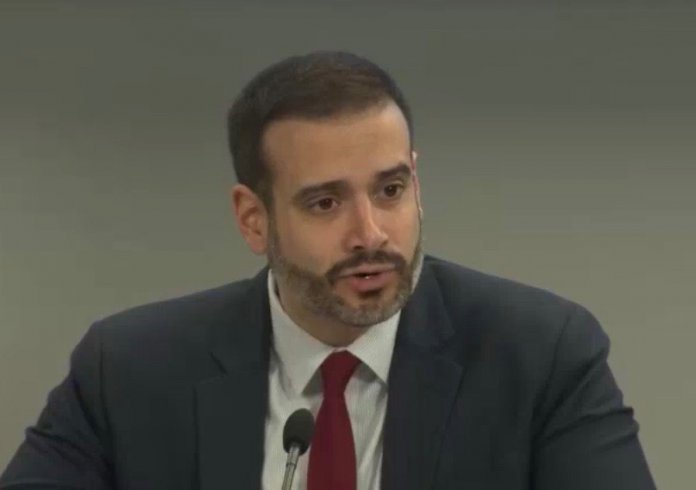FALL RIVER: The province will work with the NSTU on a pair of items as part of the new Education Reform Act it introduced as a new bill on March 1.
In a release, Education Minister Zach Churchill said the province wants to support teaching excellence but will take a different approach to the recommendation in the report by Dr. Avis Glaze on a College of Educators.
The release about the Education Reform Act says the province will work with teachers and the NSTU to develop teaching and leadership standards. Government has also agreed to work with the NSTU on a number of recommendations that focus on areas, including extracurricular activities, professional development, strategies for recruiting teachers, rural education, educational needs of new immigrants, French language education, students living in poverty, and children in care.
Churchill said the act will strengthen the education system and establish a foundation for other improvements, including the Commission on Inclusive Education.
“After hearing for many years that our education system needs to change, we are making foundational reforms that will keep us focused on student success,” said Education and Early Childhood Development Minister Zach Churchill.
To help unify the system, seven elected English school boards will be dissolved as of March 31. The $2.3 million in annual board member stipends and expenses will go back into schools.
Under the proposed legislation, board offices will be renamed regional education centres. They will continue to make the same regional and local decisions they do now. Superintendents will become regional executive directors, reporting to the deputy minister of education.
The Conseil scolaire acadien provincial (CSAP) will remain in place. An act to oversee the CSAP will be introduced later in the session. For the first time, there will be separate legislation for the CSAP, reflecting the cultural and linguistic rights of Acadians and francophones.
A new Provincial Advisory Council of Education will be created. It will have up to 15 members, representing all regions, and diverse communities and backgrounds. A representative with experience in inclusive education will also sit on the council.
Two new executive director positions representing the African Nova Scotian and Mi’kmaw communities are being created at the Department of Education and Early Childhood Development. The department will work with those communities to enhance their voices.
Principals, vice-principals and other senior supervisory staff will move out of the Nova Scotia Teachers Union (NSTU) to a new association called the Public School Administrators Association. This means they are removed from the NSTU bargaining unit and no longer members, but are still affiliated with the NSTU. That affiliation ensures seniority and compensation are protected, and principals and vice-principals will have the same benefits and pension they do now.
School Advisory Councils will be supported to advance local priorities for their communities. Consultations with current members will be held this spring to determine details such as their structure, membership, and supports needed for members.
In addition to the legislative measures, teachers will now have more say in choosing learning resources and textbooks for their classroom. Teaching support specialists will spend less time in regional offices and more time in schools where they will work closer with teachers and students.
“Our vision for students is that they have the same start, and same chance at success once they graduate,” Churchill said. “The changes in the Education Reform Act will strengthen our system to ensure all partners can focus 100 per cent on our kids.”
NSTU President Liette Doucet held a press conference this afternoon saying the compromises made by the province had been enough to ensure they do not pursue job action.
“A college of teachers and a central department of evaluations would have created more
unnecessary bureaucracy and would have drained resources from our schools. It is
positive those ideas have been rejected,” said Doucet. “Similarly, a province-wide seniority list would place rural communities as risk, so we are pleased that concept is now being reconsidered.”
She said the Teachers Union remains opposed to the legislation.
“The collegial model is badly damaged with the removal of administrators from our
bargaining unit, and I fear this could bring more conflict to our schools,” she said. “Similarly, I am genuinely fearful of the chaos that the elimination of English school boards will bring to
the entire system.
“This approach has not served our health care system well.”
Doucet wanted to thank parents, students and community members for their overwhelming
support in recent weeks. She said a powerful message teachers presented with their strike mandate helped raise awareness of the risks that came from implementing the Glaze Report.
“Teachers have been united in opposing changes outlined in the Glaze report, and their
collective voice has begun to open the eyes and ears of government to the challenges our
students are facing,” said Doucet. “We are well aware of the short-term impact a strike would have on families, and while the government has done enough to avert job action, they still have much more to do to improve our public education system.
“We will hold them accountable.”







